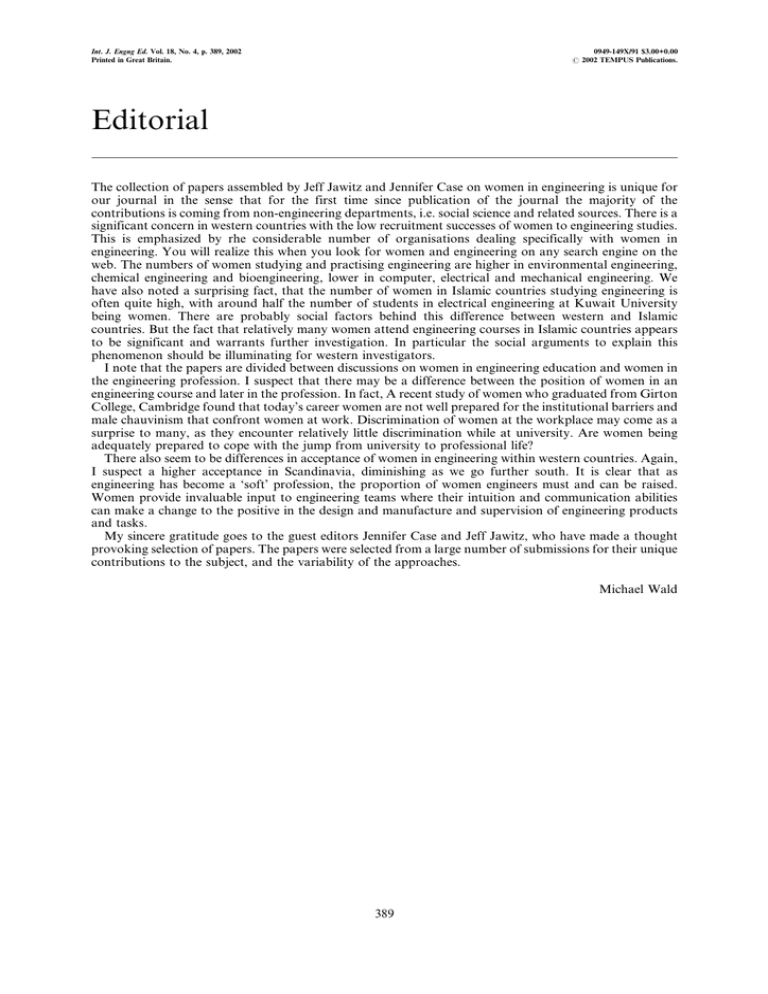Int. J. Engng Ed. Vol. 18, No. 4, p. 389,... 0949-149X/91 $3.00+0.00 Printed in Great Britain. # 2002 TEMPUS Publications.
advertisement

Int. J. Engng Ed. Vol. 18, No. 4, p. 389, 2002 Printed in Great Britain. 0949-149X/91 $3.00+0.00 # 2002 TEMPUS Publications. Editorial The collection of papers assembled by Jeff Jawitz and Jennifer Case on women in engineering is unique for our journal in the sense that for the first time since publication of the journal the majority of the contributions is coming from non-engineering departments, i.e. social science and related sources. There is a significant concern in western countries with the low recruitment successes of women to engineering studies. This is emphasized by rhe considerable number of organisations dealing specifically with women in engineering. You will realize this when you look for women and engineering on any search engine on the web. The numbers of women studying and practising engineering are higher in environmental engineering, chemical engineering and bioengineering, lower in computer, electrical and mechanical engineering. We have also noted a surprising fact, that the number of women in Islamic countries studying engineering is often quite high, with around half the number of students in electrical engineering at Kuwait University being women. There are probably social factors behind this difference between western and Islamic countries. But the fact that relatively many women attend engineering courses in Islamic countries appears to be significant and warrants further investigation. In particular the social arguments to explain this phenomenon should be illuminating for western investigators. I note that the papers are divided between discussions on women in engineering education and women in the engineering profession. I suspect that there may be a difference between the position of women in an engineering course and later in the profession. In fact, A recent study of women who graduated from Girton College, Cambridge found that today's career women are not well prepared for the institutional barriers and male chauvinism that confront women at work. Discrimination of women at the workplace may come as a surprise to many, as they encounter relatively little discrimination while at university. Are women being adequately prepared to cope with the jump from university to professional life? There also seem to be differences in acceptance of women in engineering within western countries. Again, I suspect a higher acceptance in Scandinavia, diminishing as we go further south. It is clear that as engineering has become a `soft' profession, the proportion of women engineers must and can be raised. Women provide invaluable input to engineering teams where their intuition and communication abilities can make a change to the positive in the design and manufacture and supervision of engineering products and tasks. My sincere gratitude goes to the guest editors Jennifer Case and Jeff Jawitz, who have made a thought provoking selection of papers. The papers were selected from a large number of submissions for their unique contributions to the subject, and the variability of the approaches. Michael Wald 389





